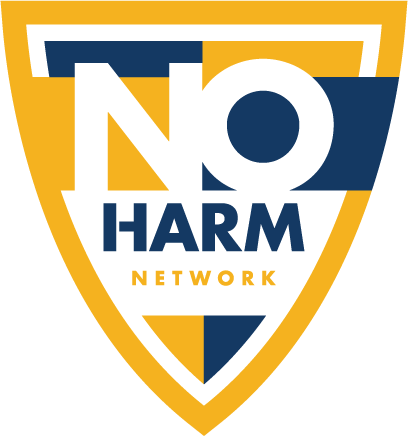Carrying the Weight Twice: Managing Stress as You Serve
/Written by Annette Bailey, Program Resource Coordinator & Survivor Leader
Handling stress at work has its challenges in any work environment, but it is especially difficult when your work is not just a job, but your purpose, and is deeply personal to your own life. What we don’t talk about enough is how vicarious trauma shows up for all of us in this work. This is especially true as survivor leaders, given that our own histories are linked with the very experiences our clients are facing in their own lives. We all know of the ways in which we could or “should” deal with our stresses: walking, taking breaks, deep breathing, communicating with our managers, setting boundaries between our work and our personal life, and seeking support as needed.
Working at an anti-trafficking organization means holding story after story of pain, grief, suffering, and so much resilience. It also means holding joy, watching eyes light up with pride, and so much laughter. For those of us who are survivor leaders doing this work, this work is sacred and deeply personal. It means that while we are doing this work of supporting women, we are also aware of how their stories and experiences echo our own. That means we have to work tirelessly to make sure the stress doesn't sweep us under, so we can remain the guide and support these women deserve.
When this work hits close, because it will.
Yes, all this sounds profound, but when work affects you personally, speaking from my own experience, you might not have time to figure out all these different techniques and boundaries. Especially when the stress and harsh realities your clients face do not take breaks, and the work continues day after day. It is difficult to care so deeply about these clients and find a way for it not to bleed into your own stress load. When you yourself have lived through the very abuse and control these clients are enduring, this work can feel both healing and harmful at times. This aspect makes it vital to find a way to make sense of the different emotions we face daily. It becomes even more important that we draw encouragement from our loved ones, peers, and community to take care of ourselves. We must approach this thoughtfully and with intention, because ultimately, if we don’t, the clients we care deeply for will face even greater risks.
The idea of “strong”
There is a harmful idea that survivor leaders should be endlessly strong and that our own lived experiences make us immune to this burnout and vicarious trauma. The truth, though, is that it’s the opposite, and it makes us more vulnerable. The reality is that we are human. We, like anyone else, have our own triggers and tender spots, and unlike most people, we are reminded of them each and every day in this line of work. Sitting with other survivors requires me to wear so many hats and in so many different moments. There are times when, as a survivor leader, I need to be a protector, times when I am the advocate, times when I am the supportive voice, and times when I set the rules to help her succeed. But all these experiences require me to be steadfast in the very experiences and memories I have already made peace with, like a passenger who will always be with me.
Stress was beginning to take me to a place of no return. Stress was starting to affect my physical and mental well-being. But I had to take a step back. First, I assessed my stress levels and took some time to reflect on how I could better care for my physical and mental well-being. After completing these tasks, I took the time to follow simple tips and tricks on stress management and really focus on myself to relieve my tension. I had to remind myself that my clients deserve the best of me, and I can’t give them that if I succumb to stress. I had to practice what I preached and do the very things we encourage clients to do. Take breaks, take one step at a time, focus on one goal at a time, and lean into my community and support. Today I’m in a different place in life, staying faithful in consoling myself, reminding myself of what I bring to the table, praying to a higher power greater than myself, and inviting others in to help me along the way.
A final note
If you are a survivor leader in the workplace, I want to thank you. Your compassion, courage, and voice are essential. However, please remember that your worth is not tied to what you can and do for others, and your healing is just as important and valuable as the people you are supporting. This work is heavy because these women matter. But in order to do this work, we must look inwards and make sure it doesn’t come at our own cost. You deserve the same grace, gentleness, safety, and autonomy you fight so fiercely to create for these women.










